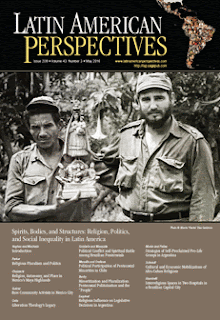Between Academia and Civil Society: The Origins of Latin American Studies in the Netherlands
by Michiel Baud
Dutch Latin American studies as a field of academic teaching and research emerged in the late 1960s and became consolidated in the 1970s and 1980s. It began as a purely academic endeavor, but in a changing Dutch and global society in the 1970s it rapidly became connected to and influenced by social and political processes in Latin America. The strong Christian and social-democratic traditions in the Netherlands allowed for strong links between academic researchers and civil society organizations. This resulted in the productive coexistence of academic and more political objectives and activities and allowed Dutch Latin American studies to grow into a dynamic field. A review of this experience calls attention to the importance of local conditions for understanding the consequences of the Cold War for academic research.







